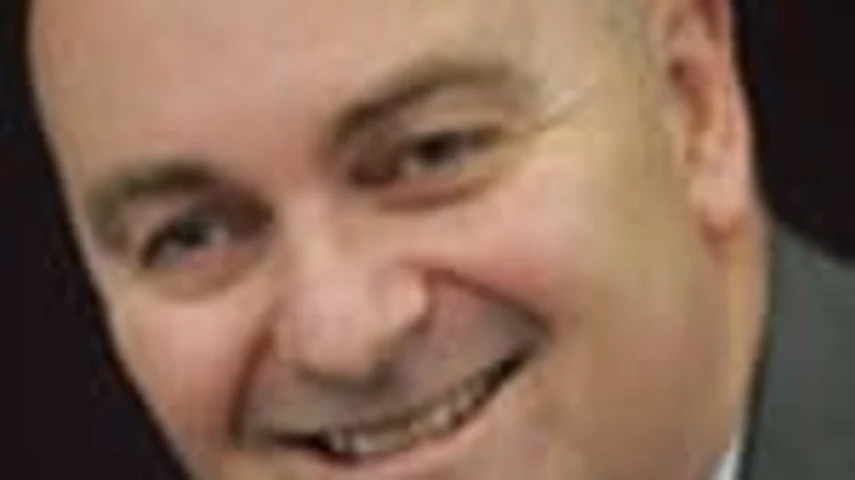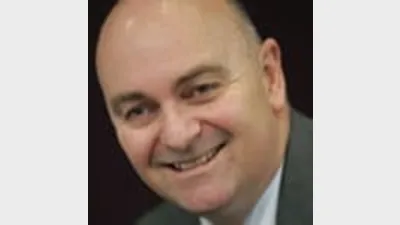Don’t waste the coming crisis – preparing your Game Plan for 2018



Machiavelli is credited with first saying “never waste a good crisis” and Winston Churchill popularised it in WWII. In 2018 it should become every adviser’s catch cry.
In our view, the advent of the Royal Commission into Banking and Financial Services was inevitable. However, the scope goes beyond what anyone may have anticipated a coalition government would deliver.
For instance, in the final week of 2017, the head of the Commission, Kenneth Hayne, advised banks, insurance companies and superannuation funds to report all misconduct cases or behaviour that fell short of community expectations going back to 2008. And by the way, please limit your response to no more than 50 pages!
This is well beyond looking into banks that have sold up struggling farmers and will have far reaching impacts for years to come.
Perhaps this is a function of what some consider to be a short time frame for reporting, but this dragnet will trawl up all that is wrong with the financial services industry and none of what is right.
Each and every public scandal going back over the past 10 years will be revisited and reviewed through the lens of current community expectations which are likely to be reshaped as it evolves.
Though we believe that substantial positives and many opportunities will emerge via the commission, the excoriating daily process of the hearings will further diminish the industry in the eyes of clients and participants alike.
According to the latest Edelman Trust Barometer, which surveys the general public about the trust and reliability of institutions, 50 per cent of respondents don’t trust the financial advice or asset management industry. Most feel the system is broken or working against them. The Royal Commission will reinforce these concerns and, in many cases, be irrefutable.
Now, there will be many advisers who (I hope) are reading this who are:
a) Not surprised by the survey results, and
b) Not concerned as their clients do trust them.
This may well be correct; however, retaining clients is only part of the challenge for businesses. Where is the growth going to come from? Though Australian consumers are losing faith in a number of our institutions, it is important to recognise that this is a global and unstoppable movement that offers as much opportunity as challenge.
Prospective clients are applying their own filters to their selection criteria, informed by media, family and friends, so many advisers are unknowingly excluded before the game even begins.
At GreenZone we see the Royal Commission as a tipping point for the industry and have identified some key emerging themes for the year ahead.
Emerging theme 1- The Royal Commission will highlight how badly conflicted the vertically integrated model is.
The day of the conflicted advice model is coming to an end. The vertically integrated business model is clearly no longer compatible with good client outcomes. It’s expensive to maintain and is a handbrake on sorely needed innovation.
This is a view informed through global experience. The Government Accountability Office in the United States (GAO) reviewed outcomes achieved for 401k plan clients and reported an annualised lower outcome (fees and returns) of 1.2 – 1.3 per cent from conflicted advice. In real terms it means a staggering 40 per cent less money in retirement for 401k savers.
Though not exactly the same, client outcomes are not so different in the vertically integrated and owned business models in Australia. The practice of limiting the approved product list to aligned margin rich products throughout the value chain can diminish client outcomes by as much as 100 basis points a year.
There are way too many expensive snouts in the vertically integrated trough and there is no doubt the commission will view this harshly.
One example is the grab for market share by one of the big four banks by writing large incentive cheques to attract practices to their dealer and platform businesses. These were accompanied by strict non-disclosure agreements that would enable executives with “plausible deniability.” This, along with the disclosure – or lack of it – will make for interesting reading for the Commission.
Emerging theme 2 – the complete separation of advice from product.
The investment required for compliance frameworks to oversee and massage the conflicted model is increasingly expensive. The client bears all the costs and the cost is way too high.
Hence, a clear recommendation from the commission for the complete separation of advice and product will be a likely priority. This will mean a level playing field for the first time and create opportunities for advisers and providers to differentiate.
The advice industry must move into the green zone – a conflict free zone where best interests are a given and better client outcomes are guaranteed. The green zone is where clients are truly the most important part of the equation. A conflict free advice model has far less risk and cost to the business which is of course great news for the client.
But wait, there’s more! A conflict free business landscape will unleash a plethora of product choice and competitiveness that will deliver better outcomes for clients. Good advice and client engagement will attract and maintain its value, while technology and choice will further commoditise a broader range of administration solutions and enable greater value for money from the best money managers in the world.
Emerging theme 3 – the emergence of the fee for service risk adviser.
Advice and business models will evolve to accommodate the conflict free environment. Life insurance commissions will remain under pressure and will spawn professional fee for service firms that specialise in estate planning, management and succession. Insurers will embrace wholesale premium rates.
Emerging theme 4 – culture is key to the recognition of advice as a profession.
Raising the bar of entry must include filters around behaviour and culture. Indeed, this is an issue very high on prospective clients’ checklist. Higher qualifications are a good start, though there is a limit to how effective this can be by itself. And without reform to the system, there will be smarter, better qualified bad apples who work it. Removing conflicts from the system and higher educational standards can take us from an industry to a profession.
Emerging theme 5 – the death of the dealer group model.
Innovation will not be limited to administration and products. The Dealer Group model will give way for a new Buying Group model. Buying Groups will bring scale so that advisers can continue to have access to scalable business solutions, but importantly without the need for product support to pay for it. Buyers Groups will also provide a platform for client advocacy.
Advisers will “plug and play” the best services available. Buyer groups will not necessarily provide all things to all advisers. Businesses that focus on delivering programs and services that grow business value could leave compliance services to another.
Advisers applying for their own Australian Financial Services Licences (AFSLs) was one of the fastest growing trend in 2017. Though not the only option for advisers who operate or are moving to a conflict free model, the emergence of buyer groups and some excellent providers who can assist with the process means growth in the self-licensed model will continue over 2018.
ASIC has amply demonstrated its monitoring and supervision of smaller licensees during 2017 so it is important to understand the responsibilities and obligations before going down this path.
So, expect (another) year of scandal but on steroids that will make it all too easy to be distracted from your business.
Those advisers and associated stakeholders who prefer the “wait and see approach” are best advised to plan for the worst and hope for the best. This way, you get a better business regardless of the happenings and outcomes of the commission.
Doing nothing is also an option, but to be clear, hope is not a strategy!
However, for forward thinking advisers, this should be one of the best opportunities available and it’s time to position your business to take advantage of the disruption. It is important to remain disciplined with your client engagement. Take the time to review and focus on your business purpose to create a winning strategic agenda. Defining, living and demonstrating your firm’s purpose should be on your to do list in 2018. We call this Planning around Purpose.
Move away from the vertically integrated model and transition to absolute independence in every layer of your business.
Above all - don’t waste the crisis.
Geoff Rimmer is co-founder of GreenZone Australia, a consulting firm for the financial services sector that provides education and support for advisory businesses committed to providing conflict-free advice
Recommended for you
As the industry shifts from client-centric to consumer-centric portfolios, this personalisation is likely to align portfolios with investors’ goals, increasingly reflect their life preferences, and serve as a gateway to rewards and benefits.
Managing currency risk in an international portfolio can both reduce the volatility, as well as improve overall returns, but needs to be navigated carefully.
In today’s evolving financial landscape, advisers are under increasing pressure to deliver more value to clients, to be faster, smarter, and with greater consistency.
Winning one premiership can come down to talent, luck, or timing but winning multiple ones indicates something deeper and successful is at play, writes Darren Steinhardt.










